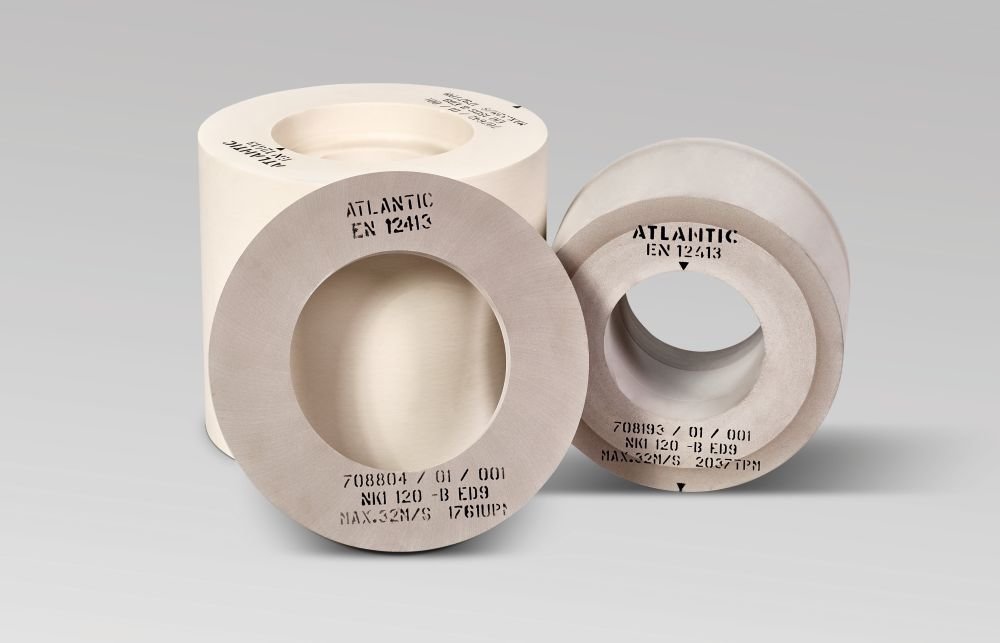Traditionally, control wheels consist of grain held within a rubber matrix. Due to the difficulties of working with rubber for calendering and vulcanisation, the distribution of the grain and bond for such control wheels is often inhomogeneous. This has a negative influence on the quality of the workpiece, productivity, and the tool life of the grinding and control wheel.
To solve this problem ATLANTIC has developed an ED bonding system for control wheels, which is based on a cold-setting resin. A critical component of this development phase is the creation of a manufacturing process, in which an intensive mixture of grain and bond, combined with a carefully controlled curing procedure, ensures an optimum grain/bond distribution without the inclusion of air bubbles in the raw mix.
This technique enables ATLANTIC ED control wheels to be cast in one phase, which prevents separation of the previously mixed components and guarantees an even structure across the entire width of the wheel.
The following standard qualities are recommended for general centreless external cylindrical grinding, through-feed grinding and plunge grinding operations
- from NK1 100-B ED9 (for a normal surface finish) to NK1 220-B ED9 (for a finer surface finish).
- For more demanding applications we recommend: from NK1 120S-B ED9 (for a normal surface finish) to NK1 180S-B ED9 (for a finer surface finish).
- For applications that require a softer quality we recommend: from NK1 120-B ED1 (for a normal surface finish) to NK1 150-B ED1 (for a finer surface finish).
Special, application-specific qualities are available on request.

